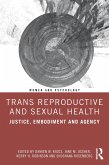Social Psychology of Intergroup Reconciliation (eBook, ePUB)
From Violent Conflict to Peaceful Co-Existence
Redaktion: Nadler, Arie; Fisher, Jeffrey D.; Malloy, Thomas
35,95 €
35,95 €
inkl. MwSt.
Sofort per Download lieferbar

18 °P sammeln
35,95 €
Als Download kaufen

35,95 €
inkl. MwSt.
Sofort per Download lieferbar

18 °P sammeln
Jetzt verschenken
Alle Infos zum eBook verschenken
35,95 €
inkl. MwSt.
Sofort per Download lieferbar
Alle Infos zum eBook verschenken

18 °P sammeln
Social Psychology of Intergroup Reconciliation (eBook, ePUB)
From Violent Conflict to Peaceful Co-Existence
Redaktion: Nadler, Arie; Fisher, Jeffrey D.; Malloy, Thomas
- Format: ePub
- Merkliste
- Auf die Merkliste
- Bewerten Bewerten
- Teilen
- Produkt teilen
- Produkterinnerung
- Produkterinnerung

Bitte loggen Sie sich zunächst in Ihr Kundenkonto ein oder registrieren Sie sich bei
bücher.de, um das eBook-Abo tolino select nutzen zu können.
Hier können Sie sich einloggen
Hier können Sie sich einloggen
Sie sind bereits eingeloggt. Klicken Sie auf 2. tolino select Abo, um fortzufahren.

Bitte loggen Sie sich zunächst in Ihr Kundenkonto ein oder registrieren Sie sich bei bücher.de, um das eBook-Abo tolino select nutzen zu können.
For the most part, groups and nations have blamed competition for scarce and coveted resources as an important source of conflict, claiming that resolution depends on mutual agreement concerning how to divide these resources. The present volume focuses on the removal of psychological barriers (e.g., lack of trust, feelings of victimization, perceived lack of power) as a way to end conflict. Social psychology is uniquely equipped, both theoretically and methodologically, to deal with this challenge.
- Geräte: eReader
- mit Kopierschutz
- eBook Hilfe
- Größe: 2.64MB
Andere Kunden interessierten sich auch für
![Social Psychology of Intergroup Reconciliation (eBook, PDF) Social Psychology of Intergroup Reconciliation (eBook, PDF)]() Social Psychology of Intergroup Reconciliation (eBook, PDF)51,95 €
Social Psychology of Intergroup Reconciliation (eBook, PDF)51,95 €![Pathological Altruism (eBook, ePUB) Pathological Altruism (eBook, ePUB)]() Pathological Altruism (eBook, ePUB)55,95 €
Pathological Altruism (eBook, ePUB)55,95 €![Adolescents and War (eBook, ePUB) Adolescents and War (eBook, ePUB)]() Brian K BarberAdolescents and War (eBook, ePUB)34,95 €
Brian K BarberAdolescents and War (eBook, ePUB)34,95 €![Trans Reproductive and Sexual Health (eBook, ePUB) Trans Reproductive and Sexual Health (eBook, ePUB)]() Trans Reproductive and Sexual Health (eBook, ePUB)37,95 €
Trans Reproductive and Sexual Health (eBook, ePUB)37,95 €![Are We Free? Psychology and Free Will (eBook, ePUB) Are We Free? Psychology and Free Will (eBook, ePUB)]() Are We Free? Psychology and Free Will (eBook, ePUB)26,95 €
Are We Free? Psychology and Free Will (eBook, ePUB)26,95 €![The Oxford Handbook of Culture and Psychology (eBook, ePUB) The Oxford Handbook of Culture and Psychology (eBook, ePUB)]() The Oxford Handbook of Culture and Psychology (eBook, ePUB)80,95 €
The Oxford Handbook of Culture and Psychology (eBook, ePUB)80,95 €![The Redemptive Self (eBook, ePUB) The Redemptive Self (eBook, ePUB)]() Dan P. McadamsThe Redemptive Self (eBook, ePUB)28,95 €
Dan P. McadamsThe Redemptive Self (eBook, ePUB)28,95 €-
-
-
For the most part, groups and nations have blamed competition for scarce and coveted resources as an important source of conflict, claiming that resolution depends on mutual agreement concerning how to divide these resources. The present volume focuses on the removal of psychological barriers (e.g., lack of trust, feelings of victimization, perceived lack of power) as a way to end conflict. Social psychology is uniquely equipped, both theoretically and methodologically, to deal with this challenge.
Dieser Download kann aus rechtlichen Gründen nur mit Rechnungsadresse in A, B, BG, CY, CZ, D, DK, EW, E, FIN, F, GR, HR, H, IRL, I, LT, L, LR, M, NL, PL, P, R, S, SLO, SK ausgeliefert werden.
Produktdetails
- Produktdetails
- Verlag: OUP eBook
- Erscheinungstermin: 10. März 2008
- Englisch
- ISBN-13: 9780190293680
- Artikelnr.: 42682260
- Verlag: OUP eBook
- Erscheinungstermin: 10. März 2008
- Englisch
- ISBN-13: 9780190293680
- Artikelnr.: 42682260
- Herstellerkennzeichnung Die Herstellerinformationen sind derzeit nicht verfügbar.
* Introduction: Intergroup Reconciliation - Dimensions and Themes
* Part A: Intergroup Reconciliation: Its Nature
* 1: Herbert C. Kelman: Reconciliation From a Social Psychological
Perspective
* Part B: Socio-Emotional Reconciliation: Moving Beyond Victimhood,
Guilt, and Humiliation
* (1) Guilt, Victimhood, and Forgiveness
* 2: Arie Nadler and Nurit Shnabel: Instrumental and Socio-Emotional
Paths to Intergroup Reconciliation and the Need-Based Model of
Socio-Emotional Reconciliation
* 3: Pumla Gobodo-Madikizela: Transforming Trauma in the Aftermath of
Gross Human Rights Abuses: Making Public Spaces Intimate through the
South African Truth and Reconciliation Commission
* 4: Anca M. Miron and Nyla R. Branscombe: Social Categorization,
Standards of Justice, and Collective Guilt
* 5: Masi Noor, Rubert Brown, and Garry Prentice: Prospects for
Intergroup Reconciliation: Social Psychological Predictors of
Intergroup Forgiveness and Reparation in Northern Ireland and Chile
* (2) Restoring Respect and Esteem
* 6: Felicia Pratto and Demis E. Glasford: How Needs Can Motivate
Intergroup Reconciliation in the Face of Intergroup Conflict
* 7: Ronnie Janoff-Bulman and Amelie Werther: The Social Psychology of
Respect: Implications for Delegitimization and Reconciliation
* 8: Jennifer Crocker, Julie A. Garcia and Noah Nuer: From Egosystem to
Ecosystem in Intergroup Interactions: Implications for Intergroup
Reconciliation
* Part C: Instrumental Reconciliation: Contact, Common Identity, and
Equality
* 9: Miles Hewstone, Catherine Pinder, Jared Kenworthy, Ed Cairns,
Nicole Tausch, Joanne Hughes, Tania Tam, Alberto Voci and Ulrich von
Hecker: Stepping Stones to Reconciliation in Northern Ireland:
Intergroup Contact, Forgiveness and Trust
* 10: John F. Dovidio, Samuel L. Gaertner, Melissa-Sue John, Samer
Halabi, Tamar Saguy, Adam R. Pearson and Blake M. Riek: Majority and
Minority Perspectives in Intergroup Relations: The Role of Contact,
Group Representations, Threat, and Trust in Intergroup Conflict and
Reconciliation
* 11: Blake M. Riek, Samuel L. Gaertner, John F. Dovidio, Marilynn B.
Brewer, Eric W. Mania, and Marika J. Lamoreaux: A Social
Psychological Approach to Post-Conflict Reconciliation
* 12: Reuben M. Baron: Reconciliation, Trust and Cooperation: Using
Bottom-Up and Top-Down Strategies to Achieve Peace in the
Israeli-Palestinian Conflict
* (4) Equality and Differential Power
* 13: Lasana T. Harris and Susan T. Fiske: Diminishing Vertical
Distance: Power and Social Status as Barriers to Inter-group
Reconciliation
* 14: Russell Spears: Social Identity, Legitimacy and Intergroup
Conflict: The Rocky Road to Reconciliation
* 15: Thomas E. Malloy: Intergroup Relations and Reconciliation:
Theoretical Analysis and Methodological Implications
* Part D: Programs to Promote Intergroup Reconciliation
* 16: Walter G. Stephan: The road to reconciliation
* 17: Ervin Staub: Promoting Reconciliation After Genocide and Mass
Killing in Rwanda - and Other Post-Conflict Settings: Understanding
the Roots of Violence, Healing, Shared History, and General
Principles
* 18: Stephen Worchel and Dawna K. Coutant: Between Conflict and
Reconciliation: Toward a Theory of Peaceful Co-existance
* 19: Jeffrey D. Fisher, Arie Nadler, Jessica S. Little and Tamar
Saguy: Help as a Vehicle to Reconciliation, With Particular Reference
to Help for Extreme Health Needs
* Part E: Intergroup Reconciliation: An Overall View
* 20: Morton Deutsch: Reconciliation After Destructive Intergroup
Conflict
* Part A: Intergroup Reconciliation: Its Nature
* 1: Herbert C. Kelman: Reconciliation From a Social Psychological
Perspective
* Part B: Socio-Emotional Reconciliation: Moving Beyond Victimhood,
Guilt, and Humiliation
* (1) Guilt, Victimhood, and Forgiveness
* 2: Arie Nadler and Nurit Shnabel: Instrumental and Socio-Emotional
Paths to Intergroup Reconciliation and the Need-Based Model of
Socio-Emotional Reconciliation
* 3: Pumla Gobodo-Madikizela: Transforming Trauma in the Aftermath of
Gross Human Rights Abuses: Making Public Spaces Intimate through the
South African Truth and Reconciliation Commission
* 4: Anca M. Miron and Nyla R. Branscombe: Social Categorization,
Standards of Justice, and Collective Guilt
* 5: Masi Noor, Rubert Brown, and Garry Prentice: Prospects for
Intergroup Reconciliation: Social Psychological Predictors of
Intergroup Forgiveness and Reparation in Northern Ireland and Chile
* (2) Restoring Respect and Esteem
* 6: Felicia Pratto and Demis E. Glasford: How Needs Can Motivate
Intergroup Reconciliation in the Face of Intergroup Conflict
* 7: Ronnie Janoff-Bulman and Amelie Werther: The Social Psychology of
Respect: Implications for Delegitimization and Reconciliation
* 8: Jennifer Crocker, Julie A. Garcia and Noah Nuer: From Egosystem to
Ecosystem in Intergroup Interactions: Implications for Intergroup
Reconciliation
* Part C: Instrumental Reconciliation: Contact, Common Identity, and
Equality
* 9: Miles Hewstone, Catherine Pinder, Jared Kenworthy, Ed Cairns,
Nicole Tausch, Joanne Hughes, Tania Tam, Alberto Voci and Ulrich von
Hecker: Stepping Stones to Reconciliation in Northern Ireland:
Intergroup Contact, Forgiveness and Trust
* 10: John F. Dovidio, Samuel L. Gaertner, Melissa-Sue John, Samer
Halabi, Tamar Saguy, Adam R. Pearson and Blake M. Riek: Majority and
Minority Perspectives in Intergroup Relations: The Role of Contact,
Group Representations, Threat, and Trust in Intergroup Conflict and
Reconciliation
* 11: Blake M. Riek, Samuel L. Gaertner, John F. Dovidio, Marilynn B.
Brewer, Eric W. Mania, and Marika J. Lamoreaux: A Social
Psychological Approach to Post-Conflict Reconciliation
* 12: Reuben M. Baron: Reconciliation, Trust and Cooperation: Using
Bottom-Up and Top-Down Strategies to Achieve Peace in the
Israeli-Palestinian Conflict
* (4) Equality and Differential Power
* 13: Lasana T. Harris and Susan T. Fiske: Diminishing Vertical
Distance: Power and Social Status as Barriers to Inter-group
Reconciliation
* 14: Russell Spears: Social Identity, Legitimacy and Intergroup
Conflict: The Rocky Road to Reconciliation
* 15: Thomas E. Malloy: Intergroup Relations and Reconciliation:
Theoretical Analysis and Methodological Implications
* Part D: Programs to Promote Intergroup Reconciliation
* 16: Walter G. Stephan: The road to reconciliation
* 17: Ervin Staub: Promoting Reconciliation After Genocide and Mass
Killing in Rwanda - and Other Post-Conflict Settings: Understanding
the Roots of Violence, Healing, Shared History, and General
Principles
* 18: Stephen Worchel and Dawna K. Coutant: Between Conflict and
Reconciliation: Toward a Theory of Peaceful Co-existance
* 19: Jeffrey D. Fisher, Arie Nadler, Jessica S. Little and Tamar
Saguy: Help as a Vehicle to Reconciliation, With Particular Reference
to Help for Extreme Health Needs
* Part E: Intergroup Reconciliation: An Overall View
* 20: Morton Deutsch: Reconciliation After Destructive Intergroup
Conflict
* Introduction: Intergroup Reconciliation - Dimensions and Themes
* Part A: Intergroup Reconciliation: Its Nature
* 1: Herbert C. Kelman: Reconciliation From a Social Psychological
Perspective
* Part B: Socio-Emotional Reconciliation: Moving Beyond Victimhood,
Guilt, and Humiliation
* (1) Guilt, Victimhood, and Forgiveness
* 2: Arie Nadler and Nurit Shnabel: Instrumental and Socio-Emotional
Paths to Intergroup Reconciliation and the Need-Based Model of
Socio-Emotional Reconciliation
* 3: Pumla Gobodo-Madikizela: Transforming Trauma in the Aftermath of
Gross Human Rights Abuses: Making Public Spaces Intimate through the
South African Truth and Reconciliation Commission
* 4: Anca M. Miron and Nyla R. Branscombe: Social Categorization,
Standards of Justice, and Collective Guilt
* 5: Masi Noor, Rubert Brown, and Garry Prentice: Prospects for
Intergroup Reconciliation: Social Psychological Predictors of
Intergroup Forgiveness and Reparation in Northern Ireland and Chile
* (2) Restoring Respect and Esteem
* 6: Felicia Pratto and Demis E. Glasford: How Needs Can Motivate
Intergroup Reconciliation in the Face of Intergroup Conflict
* 7: Ronnie Janoff-Bulman and Amelie Werther: The Social Psychology of
Respect: Implications for Delegitimization and Reconciliation
* 8: Jennifer Crocker, Julie A. Garcia and Noah Nuer: From Egosystem to
Ecosystem in Intergroup Interactions: Implications for Intergroup
Reconciliation
* Part C: Instrumental Reconciliation: Contact, Common Identity, and
Equality
* 9: Miles Hewstone, Catherine Pinder, Jared Kenworthy, Ed Cairns,
Nicole Tausch, Joanne Hughes, Tania Tam, Alberto Voci and Ulrich von
Hecker: Stepping Stones to Reconciliation in Northern Ireland:
Intergroup Contact, Forgiveness and Trust
* 10: John F. Dovidio, Samuel L. Gaertner, Melissa-Sue John, Samer
Halabi, Tamar Saguy, Adam R. Pearson and Blake M. Riek: Majority and
Minority Perspectives in Intergroup Relations: The Role of Contact,
Group Representations, Threat, and Trust in Intergroup Conflict and
Reconciliation
* 11: Blake M. Riek, Samuel L. Gaertner, John F. Dovidio, Marilynn B.
Brewer, Eric W. Mania, and Marika J. Lamoreaux: A Social
Psychological Approach to Post-Conflict Reconciliation
* 12: Reuben M. Baron: Reconciliation, Trust and Cooperation: Using
Bottom-Up and Top-Down Strategies to Achieve Peace in the
Israeli-Palestinian Conflict
* (4) Equality and Differential Power
* 13: Lasana T. Harris and Susan T. Fiske: Diminishing Vertical
Distance: Power and Social Status as Barriers to Inter-group
Reconciliation
* 14: Russell Spears: Social Identity, Legitimacy and Intergroup
Conflict: The Rocky Road to Reconciliation
* 15: Thomas E. Malloy: Intergroup Relations and Reconciliation:
Theoretical Analysis and Methodological Implications
* Part D: Programs to Promote Intergroup Reconciliation
* 16: Walter G. Stephan: The road to reconciliation
* 17: Ervin Staub: Promoting Reconciliation After Genocide and Mass
Killing in Rwanda - and Other Post-Conflict Settings: Understanding
the Roots of Violence, Healing, Shared History, and General
Principles
* 18: Stephen Worchel and Dawna K. Coutant: Between Conflict and
Reconciliation: Toward a Theory of Peaceful Co-existance
* 19: Jeffrey D. Fisher, Arie Nadler, Jessica S. Little and Tamar
Saguy: Help as a Vehicle to Reconciliation, With Particular Reference
to Help for Extreme Health Needs
* Part E: Intergroup Reconciliation: An Overall View
* 20: Morton Deutsch: Reconciliation After Destructive Intergroup
Conflict
* Part A: Intergroup Reconciliation: Its Nature
* 1: Herbert C. Kelman: Reconciliation From a Social Psychological
Perspective
* Part B: Socio-Emotional Reconciliation: Moving Beyond Victimhood,
Guilt, and Humiliation
* (1) Guilt, Victimhood, and Forgiveness
* 2: Arie Nadler and Nurit Shnabel: Instrumental and Socio-Emotional
Paths to Intergroup Reconciliation and the Need-Based Model of
Socio-Emotional Reconciliation
* 3: Pumla Gobodo-Madikizela: Transforming Trauma in the Aftermath of
Gross Human Rights Abuses: Making Public Spaces Intimate through the
South African Truth and Reconciliation Commission
* 4: Anca M. Miron and Nyla R. Branscombe: Social Categorization,
Standards of Justice, and Collective Guilt
* 5: Masi Noor, Rubert Brown, and Garry Prentice: Prospects for
Intergroup Reconciliation: Social Psychological Predictors of
Intergroup Forgiveness and Reparation in Northern Ireland and Chile
* (2) Restoring Respect and Esteem
* 6: Felicia Pratto and Demis E. Glasford: How Needs Can Motivate
Intergroup Reconciliation in the Face of Intergroup Conflict
* 7: Ronnie Janoff-Bulman and Amelie Werther: The Social Psychology of
Respect: Implications for Delegitimization and Reconciliation
* 8: Jennifer Crocker, Julie A. Garcia and Noah Nuer: From Egosystem to
Ecosystem in Intergroup Interactions: Implications for Intergroup
Reconciliation
* Part C: Instrumental Reconciliation: Contact, Common Identity, and
Equality
* 9: Miles Hewstone, Catherine Pinder, Jared Kenworthy, Ed Cairns,
Nicole Tausch, Joanne Hughes, Tania Tam, Alberto Voci and Ulrich von
Hecker: Stepping Stones to Reconciliation in Northern Ireland:
Intergroup Contact, Forgiveness and Trust
* 10: John F. Dovidio, Samuel L. Gaertner, Melissa-Sue John, Samer
Halabi, Tamar Saguy, Adam R. Pearson and Blake M. Riek: Majority and
Minority Perspectives in Intergroup Relations: The Role of Contact,
Group Representations, Threat, and Trust in Intergroup Conflict and
Reconciliation
* 11: Blake M. Riek, Samuel L. Gaertner, John F. Dovidio, Marilynn B.
Brewer, Eric W. Mania, and Marika J. Lamoreaux: A Social
Psychological Approach to Post-Conflict Reconciliation
* 12: Reuben M. Baron: Reconciliation, Trust and Cooperation: Using
Bottom-Up and Top-Down Strategies to Achieve Peace in the
Israeli-Palestinian Conflict
* (4) Equality and Differential Power
* 13: Lasana T. Harris and Susan T. Fiske: Diminishing Vertical
Distance: Power and Social Status as Barriers to Inter-group
Reconciliation
* 14: Russell Spears: Social Identity, Legitimacy and Intergroup
Conflict: The Rocky Road to Reconciliation
* 15: Thomas E. Malloy: Intergroup Relations and Reconciliation:
Theoretical Analysis and Methodological Implications
* Part D: Programs to Promote Intergroup Reconciliation
* 16: Walter G. Stephan: The road to reconciliation
* 17: Ervin Staub: Promoting Reconciliation After Genocide and Mass
Killing in Rwanda - and Other Post-Conflict Settings: Understanding
the Roots of Violence, Healing, Shared History, and General
Principles
* 18: Stephen Worchel and Dawna K. Coutant: Between Conflict and
Reconciliation: Toward a Theory of Peaceful Co-existance
* 19: Jeffrey D. Fisher, Arie Nadler, Jessica S. Little and Tamar
Saguy: Help as a Vehicle to Reconciliation, With Particular Reference
to Help for Extreme Health Needs
* Part E: Intergroup Reconciliation: An Overall View
* 20: Morton Deutsch: Reconciliation After Destructive Intergroup
Conflict







